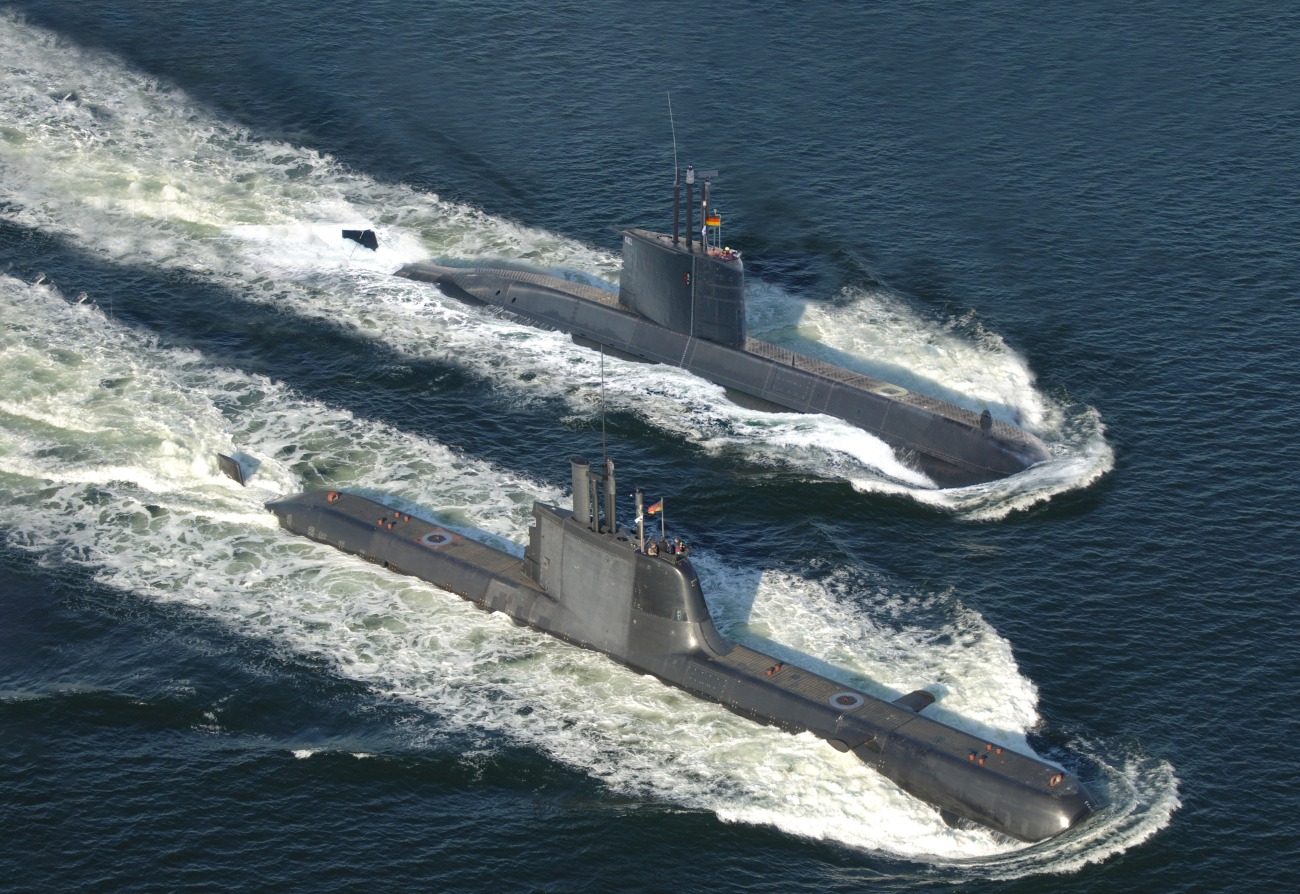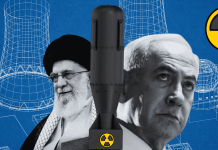Last month, the Indian MoD (Ministry of Defense) cleared state-owned MDL (Mazagon Dock Limited) to build six submarines in partnership with Germany’s TKMS (ThyssenKrupp Marine Systems).
The diesel-electric submarines, which are being procured by MoD under Project 75I, will feature AIP (Air Independent Propulsion) and be larger and more advanced than the current IN (Indian Navy) submarines.
TKMS, which had initially declined to bid for Project-75I due to the RFP’s “terms and conditions,” entered a bid after the German government backed the project.
TKMS proposed building a submarine based on its Type 214 design, incorporating specific modifications for the Indian Navy, such as stealth and AIP.
According to Khalil Rahman, head of TKMS India, the company successfully demonstrated the Air Independent Propulsion (AIP) capability on its Type 212 submarine during evaluation.
Past MDL, TKMS Collaboration
MDL and TKMS have worked in partnership since 2018, when the IN awarded a $151 million contract for the Medium Refit and Life Certification (MRLC) of INS Shishumar. MDL carried out the refit in Mumbai with technical cooperation from TKMS.
TKMS additionally delivered new equipment with maintenance and component support for the refit, as well as on-site technical support and logistical services in the form of documentation, training, and spare parts.
The MRLS was aimed at extending the life of the boat by a decade.
The Shishumar-class submarines are diesel-electric attack submarines currently in active service with the Indian Navy. They are Indian variants of the Type 209 submarines developed by Germany’s HDW. (Shishumar boats feature a larger diameter pressure hull than the Type 209.)
India signed an agreement with HDW to procure these submarines in December 1981. Under the agreement, HDW was to build two submarines at Kiel, Germany, and supply knocked-down kits to MDL for assembling two more submarines in Mumbai.
An agreement was announced in 1984 for the construction of two additional submarines in MDL but was subsequently canceled due to the economic crisis in the late 1980s.
Shishumar class submarines were commissioned between 1986 and 1994. These submarines have a displacement of 1,660 tons when surfaced, a speed of 22 knots (41 km/h; 25 mph), and a complement of 40, including eight officers
The refit was planned to be completed by 2021 but was delayed due to Covid. It was completed in 2023.
In June 2023, the MoD signed a follow-up contract with MDL for MLRC of INS Shankush. After completion of MRLC, INS Shankush will rejoin the Indian Navy in 2026.
Type 214 – German Excellence
Besides TKMS, only Navantia of Spain competed for Project 75I. However, Navantia could not immediately demonstrate an AIP system while submerged. It could only demonstrate an AIP system fitted in a submarine operating on the surface.
The Type 214 variant to be supplied by TKMS has some outstanding features. Its AIP module is fitted with lithium-ion cells. According to company officials, the AIP has a Polymer electrolyte membrane (PEM)- based fuel cell and lithium-ion battery cell, giving it enhanced performance.
Considering MDL’s past association with TKMS and the fact that its Type 214 submarine met all IN requirements, MoD’s decision to award the Project 75I contract to MDL was logical.

TKMS’ Financial Health
The only troubling aspect of the Project 75I contract is – ThyssenKrupp’s financial health presents a mixed picture with several points of concern.
ThyssenKrupp announced a downward revision in its financial forecasts on November 22, 2023, projecting lower sales and profit guidance. The projection reflected a cautious outlook on future performance, likely due to the challenging market environment and operational issues.
Following the ThyssenKrupp announcement, the company’s stock fell by as much as 10.6% during the day, indicating a sharp immediate reaction to the news. The stock has now been on a decline for the past year, with some estimates placing the annual decline at over 50%
The company is reportedly laying off employees, including top managers.
In addition, on August 15-16, 2024, a fire broke out at the company’s warehouses in Völklingen in the federal state of Saarland, and emergency services were unable to cope with the fire for about 30 hours.
The warehouse was primarily used to store steel products and raw materials, including various types of steel coils and other materials essential for ThyssenKrupp’s manufacturing processes.
Notwithstanding the drop in sales and profits, ThyssenKrupp maintains a strong liquidity position with significant cash reserves and undrawn committed credit lines. This liquidity could be seen as a positive aspect of its financial health, providing a buffer against immediate financial distress.
However, overall, it’s not possible to classify the company’s financial health as being “good.”
Submarine Manufacturing
As already discussed, MDL will execute the Project 75I contract in partnership with TKMS, the submarine manufacturing business of ThyssenKrupp.
ThyssenKrupp is reportedly making strategic changes to cope with its financial travails, changes that could well affect TKMS.
On the positive side, despite the financial challenges faced by its parent company, TKMS has successfully pursued its partnership with Mazagon Dock Shipbuilders Limited for the construction of Project 75I submarines.
The Project 75I contract is strategic in nature and value. Before awarding the contract to MDL, the Indian Government likely sought and received assurances from the German government that the project would be insulated from the financial travails of TKMS and its parent company.
However, there are limits on the extent to which the government’s support of a company can cushion a long-term submarine manufacturing contract. Financial constraints could limit TKMS’s R&D effort for upgrades and improvement and also affect product quality, particularly if capital is needed elsewhere within the company.
There are concerns that ThyssenKrupp’s financial woes may be exacerbated by high energy costs in Germany resulting from the blowing up of Nord Stream gas pipelines.
Clearly, the smooth execution of the Project 75I contract would depend heavily on India’s ability to maintain good relations with the German government. Geopolitical tensions emanating from an inexorable global shift to multipolarity could challenge India’s ability to stay in perfect harmony with Western nations, which are inclined to resort to sanctions quickly.
Factoring in the overbearing US influence over Germany and the possibility of political instability in Germany if the war in Ukraine continues indefinitely, Murphy’s law could kick in, i.e., Anything that can go wrong will go wrong.
- Vijainder K Thakur is a retired IAF Jaguar pilot, author, software architect, entrepreneur, and military analyst.
- VIEWS PERSONAL OF THE AUTHOR
- Follow the author @vkthakur




